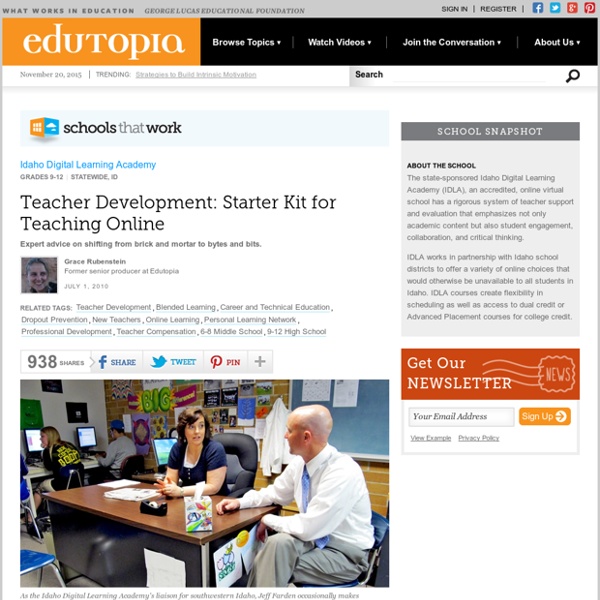Teacher Development: Starter Kit for Teaching Online

Tagxedo - Word Cloud with Styles
Bloomin' Apps
This page gathers all of the Bloomin' Apps projects in one place.Each image has clickable hotspots and includes suggestions for iPad, Android, Google and online tools and applications to support each of the levels of Bloom's Revised Taxonomy.I have created a page to allow you to share your favorite online tool, iOS, or Android app with others. Cogs of the Cognitive Processes I began to think about the triangular shape of Bloom's Taxonomy and realized I thought of it a bit differently.Since the cognitive processes are meant to be used when necessary, and any learner goes in and out of the each level as they acquire new content and turn it into knowledge, I created a different type of image that showcased my thoughts about Bloom's more meaningfully.Here is my visual which showcases the interlocking nature of the cognitive processes or, simply, the "Cogs of the Cognitive Processes". IPAD APPS TO SUPPORT BLOOM'S REVISED TAXONOMYassembled by Kathy Schrock Bloom's and SAMR: My thoughts
18 Free Mind Mapping Tools for Teachers and Students
1- SpiderScribe This is a great mind mapping tool that allows users to easily visualize their ideas by connecting various pieces of information together and create free style maps. It also combines elements like text, images, files, calendar events and geographic locations. 2- EdistormEdistorm is a great web2.0 tool for educators. 4- Bubbl.usBubbl.us allows its users to create concept maps in such an easy way with the minimum tools possible .You can create your project and invite your colleagues to join you in editing its content and when done you can share it with others via a generated link . 5- Wise Mapping Wise Mapping is a free online mind maps editor that allows you to create and share your mind maps with others. 6- Lucid ChartLucid Chart is a flowcharts and mind map making tool . 7- Text 2 Mind MapText 2 Mind Map is a cool website . 8-Spicynodes It allows its users to create a visually attractive nodes for their blogs, websites or wikis .
Quiz Revolution
GraphWords - Free Online Thesaurus
Free Technology for Teachers
Related:
Related:



